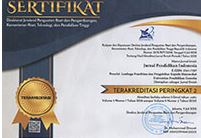Exploring The Reason of University Students to use Social Media for English Learning
DOI:
https://doi.org/10.23887/jpai.v8i3.82518Keywords:
social media, English learning, learning mediumAbstract
Numerous studies had explored the use of social media in English language learning. Those study showed that social media gave lots of benefits to both learners and educators. However, this media also brought some shortcoming even challenges for them. Nevertheless, the previous studies did not present the reason why their participants decided to keep using social media to learn English. There was just few information presented about why social media were still used in English learning either in formal or informal context of learning. Therefore, this study was conducted in an educational state university in Indonesia in order to explore the reasons of university students as English learner decided to keep using social media for learning English despite the existence of disadvantages and challenges on this media. This study was done through basic qualitative approach. By involving seven English Language Education (ELE) students, researcher conducted a semi-structured interview to collect all the data needed. An inductive theoretical analysis method was used to analyze all data. Then, the result showed that the reasons of university students decided to continue using social media in English language learning included intrinsic factors such as personal motivation and extrinsic factors such as technological advancement.
References
Abdalgane, M. (2022). The EFL Learning Process: An Examination of the Potential of Social Media. World Journal of English Language, 12(7), 69–75. https://doi.org/10.5430/wjel.v12n7p69
Aichner, T., Grünfelder, M., Maurer, O., & Jegeni, D. (2021). Twenty-Five Years of Social Media: A Review of Social Media Applications and Definitions from 1994 to 2019. In Cyberpsychology, Behavior, and Social Networking (Vol. 24, Issue 4, pp. 215–222). Mary Ann Liebert Inc. https://doi.org/10.1089/cyber.2020.0134
Albiladi, W. S. & Abdeen, F.H. (2021). Journal of Education and Practice. https://doi.org/10.7176/jep/12-35-05
Amalia, D. T., & Gumiandari, S. (2023). Effect of Using Social Media on Students’ Interest in Learning English. Journal Corner of Education, Linguistics, and Literature, 2(4), 330–342. https://doi.org/10.54012/jcell.v2i4.138
Ariantini, K. P., Suwastini, N. K. A., Adnyani, N. L. P. S., Dantes, G. R., & Jayantini, I. G. A. S. R. (2021). Integrating Social Media into English Language Learning: How and to What Benefits According to Recent Studies. NOBEL: Journal of Literature and Language Teaching, 12(1), 91–111. https://doi.org/10.15642/nobel.2021.12.1.91-111
Bell, E., Bryman, A., & Harley, B. (2023). Interviewing in Qualitative Research. 10.1093/hebz/9780198869443.003.0032.
Clissett, P. (2008). Evaluating qualitative research. Journal of Orthopaedic Nursing, 12, 99-105. https://doi.org/10.1016/j.joon.2008.07.009
Dawadi, S. (2020). Thematic Analysis Approach: A Step by Step Guide for ELT Research Practitioners. In Journal of NELTA (Vol. 25, Issue 2).
Ghimire, S. P. (2022). Secondary Students’ Learning English through Social Media: A Case Study in Nepal. International Journal of Research in Education and Science (IJRES), 8(3), 59–544. https://doi.org/10.46328/ijemst.2758
Handayani, R. D., Syafei, M., Ririn, A., & Utari, P. (2020). USE OF SOCIAL MEDIA FOR LEARNING ENGLISH. In PROMINENT Journal (Vol. 3, Issue 2).
Khan, F. U., Rahman, Z., Rahman, F., & Rana, M. I. (2023). The Effects of Social Media on Afghan Students Learning English Speaking and Reading Skills. Journal of Social Sciences Review, 3(2), 40–46. https://doi.org/10.54183/jssr.v3i2.230
Kusuma, I. P. I. (2022). “Why this and not that social media?” Reasons for using technology during online practice teaching. JALT CALL Journal, 18(2), 264–285. https://doi.org/10.29140/jaltcall.v18n2.593
Kusuma, I. P. I., Wahyuni, L. G. E., Roni, M., & Hashim, H. U. (2024). HOW CAN SOCIAL MEDIA REVOLUTIONIZE INFORMAL ENGLISH LEARNING? UNVEILING LEARNING GOALS, ADVANTAGES, AND DISADVANTAGES. LLT Journal: Journal on Language and Language Teaching, 27(1), 389–405. https://doi.org/10.24071/llt.v27i1.8232
Lamb, M., & Arisandy, F. E. (2020). The impact of online use of English on motivation to learn. Computer Assisted Language Learning, 33(1–2), 85–108. https://doi.org/10.1080/09588221.2018.1545670
Lee, J. S., & Dressman, M. (2018). When IDLE Hands Make an English Workshop: Informal Digital Learning of English and Language Proficiency. TESOL Quarterly, 52(2), 435–445. https://doi.org/10.1002/tesq.422
Lee, J. S., & Lee, K. (2021). The role of informal digital learning of English and L2 motivational self system in foreign language enjoyment. British Journal of Educational Technology, 52(1), 358–373. https://doi.org/10.1111/bjet.12955
Noori, A. Q., Orfan, S. N., Akramy, S. A., & Hashemi, A. (2022). The use of social media in EFL learning and teaching in higher education of Afghanistan. Cogent Social Sciences, 8(1). https://doi.org/10.1080/23311886.2022.2027613
Pham, A.T. (2022). An Investigation into the Use of Social Media in Teaching English. Proceedings of the 4th International Conference on Modern Educational Technology.
Prayudha, J. (2022). https://ejournal.unida-aceh.ac.id/index.php/jetli EFL STUDENTS’ PERCEPTION ON THE USE OF SOCIAL MEDIA PLATFORMS AS LEARNING TOOLS 1*. https://ejournal.unida-aceh.ac.id/index.php/jetli
Trinder, R. (2017). Informal and deliberate learning with new technologies. ELT Journal, 71(4), 401–412. https://doi.org/10.1093/elt/ccw117
Xodabande, I. (2017). The effectiveness of social media network telegram in teaching English language pronunciation to Iranian EFL learners. Cogent Education, 4(1). https://doi.org/10.1080/2331186X.2017.1347081










